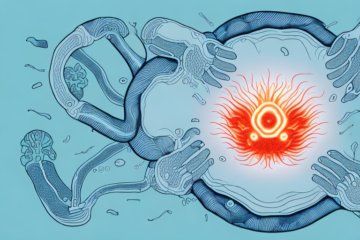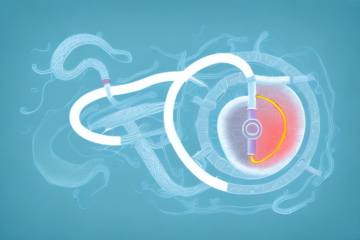Grief is a natural and often painful response to loss. It can be defined as the intense emotional and physical suffering that typically follows the death of a loved one, but can also be triggered by other kinds of loss, such as divorce, a breakup, or a serious illness. In this article, we’ll explore the different types of grief, the causes and symptoms of grief, and provide tips on how to cope with it.
The Definition of Grief: Understanding the Basics
Grief is a complex and emotional process that involves a range of physical and psychological responses. It’s a natural part of the human experience and can be seen as a way of coping with the pain of loss. Although grief is often associated with the death of a loved one, it can also be triggered by other kinds of losses, such as the end of a long-term relationship, a miscarriage, or a job loss.
One of the most common physical responses to grief is fatigue. Grieving individuals often feel exhausted and have trouble sleeping, which can lead to a range of other health problems. Additionally, grief can also manifest in physical symptoms such as headaches, stomachaches, and muscle tension.
Psychologically, grief can cause a range of emotions, including sadness, anger, guilt, and anxiety. It’s important to note that there is no “right” way to grieve, and everyone experiences it differently. Some individuals may feel overwhelmed by their emotions, while others may feel numb or disconnected. It’s important to seek support and care during the grieving process to help manage these emotions and cope with the loss.
The Different Types of Grief and How They Manifest
There are several different types of grief, and each may manifest differently depending on the individual and their relationship with the loss. The most common types of grief include:
- Normal Grief – This is the most common type of grief that is experienced after a significant loss. It’s characterized by feelings of sadness, anger, guilt, and anxiety.
- Complicated Grief – This type of grief is more intense and prolonged than normal grief, and may involve feelings of isolation, bitterness, and hopelessness.
- Anticipatory Grief – This type of grief occurs when a person prepares for the loss of a loved one, often in the case of terminal illness.
- Disenfranchised Grief – This type of grief occurs when a person’s loss is not acknowledged or recognized by others, such as the loss of a pet, or an extramarital affair.
It’s important to note that grief can also manifest physically, with symptoms such as fatigue, changes in appetite, and difficulty sleeping. Additionally, grief can affect a person’s mental health, leading to depression, anxiety, and even post-traumatic stress disorder (PTSD) in some cases. Seeking support from loved ones, a therapist, or a support group can be helpful in coping with grief and its various manifestations.
What Are the Causes of Grief and How to Identify Them?
The most common cause of grief is the death of a loved one, but other causes include:
- Divorce or the end of a long-term relationship
- Job loss or retirement
- Financial loss or bankruptcy
- Serious illness or medical condition
- Natural disasters or traumatic events
It’s important to identify the cause of grief in order to properly address it. Some signs that you may be experiencing grief include:
- Intense sadness or hopelessness
- Anger or irritability
- Difficulty sleeping or concentrating
- Isolation or withdrawal from friends and family
- Physical symptoms such as headaches or stomachaches
Another cause of grief can be a major life change, such as moving to a new city or country, or a significant shift in personal beliefs or values. This type of grief is often referred to as “ambiguous loss” because it is not a clear-cut event like a death or divorce.
In addition to the signs mentioned above, grief can also manifest in physical ways such as fatigue, changes in appetite, or even a weakened immune system. It’s important to seek support and take care of yourself during the grieving process, whether that means talking to a therapist, joining a support group, or practicing self-care activities like exercise or meditation.
How Long Does Grief Last? Understanding the Stages of Grief
There is no set timeline for grief, and everyone experiences it differently. However, most people go through several stages of grief, which can include:
- Denial and shock
- Anger and frustration
- Bargaining and guilt
- Depression and sadness
- Acceptance and moving on
These stages are not necessarily linear, and individuals may move back and forth between them. It’s important to remember that grief takes time, and there is no right or wrong way to experience it.
It’s also important to note that grief can be triggered by a variety of events, not just the death of a loved one. Grief can be experienced after a divorce, a job loss, or even a major life change such as moving to a new city. It’s important to recognize that these events can also cause grief and to seek support if needed.
While grief can be a difficult and painful experience, it can also be an opportunity for growth and self-reflection. Many people find that going through the stages of grief helps them to gain a new perspective on life and to appreciate the time they have with loved ones. It’s important to take care of yourself during this time and to seek support from friends, family, or a professional if needed.
The Physical and Emotional Symptoms of Grief: What to Expect
Grief can manifest both emotionally and physically. Some common emotional symptoms include:
- Sadness and depression
- Anger and irritability
- Anxiety and fear
- Guilt and shame
Physical symptoms of grief may include:
- Difficulty sleeping or falling asleep
- Loss of appetite and weight loss
- Headaches and body aches
- Chronic fatigue
- Illness and weakened immune system
It is important to note that grief can also affect cognitive function. Many people experience difficulty concentrating, forgetfulness, and confusion during the grieving process. This can be frustrating and overwhelming, but it is a normal part of the grieving process.
In addition to the physical and emotional symptoms, grief can also impact a person’s social life. It is common for individuals to withdraw from social activities and isolate themselves from friends and family. This can lead to feelings of loneliness and further exacerbate the emotional symptoms of grief.
Coping with Loss: Tips for Managing Your Grief
While there is no easy way to cope with grief, there are some strategies that can help make the healing journey easier:
- Express your emotions: Talk to friends and family members about your feelings, or consider speaking with a professional therapist or counselor.
- Stay active: Engage in physical activity, hobbies or volunteer work to keep yourself busy and help with the physical symptoms of grief.
- Take care of yourself: Eat well, exercise and get enough sleep to stay healthy and to ensure you have energy to cope with your grief.
- Join a support group: Connecting with others who have experienced a similar loss can be helpful in the grieving process.
- Be patient with yourself: Grief takes time, and it’s important to be patient with yourself and to take things one day at a time.
It’s important to remember that everyone grieves differently, and there is no right or wrong way to cope with loss. Some people may find comfort in religious or spiritual practices, while others may prefer to focus on self-care and relaxation techniques.
Additionally, it’s important to recognize that grief can resurface at unexpected times, even years after a loss. It’s okay to seek support and continue to work through your emotions, even if it’s been a long time since your loss.
The Role of Support Systems in Dealing with Grief
Support systems such as friends, family, professional counselors, and support groups can be extremely helpful in dealing with grief. They provide a safe space to express your emotions and offer support and encouragement. Support systems can also help in reducing the sense of isolation and loneliness that often accompanies grief.
One of the benefits of having a support system is that it can help you to maintain a sense of normalcy in your life. When you are grieving, it can be difficult to focus on everyday tasks and responsibilities. However, having people around you who can help with practical tasks such as cooking, cleaning, and running errands can make a big difference. This can help you to feel more grounded and less overwhelmed during a difficult time.
Another important aspect of support systems is that they can help you to find meaning and purpose in your life after a loss. This can involve exploring new hobbies or interests, volunteering, or finding ways to honor the memory of your loved one. By focusing on positive activities and experiences, you can begin to move forward and find a sense of hope and healing.
Seeking Professional Help: When to Consider Therapy
If your grief symptoms persist or are interfering with your daily life, it might be time to consider seeking professional help. A trained counselor or therapist can help you manage your emotions and provide you with coping strategies.
It is important to note that seeking professional help is not a sign of weakness. In fact, it takes a lot of courage to recognize when you need help and to take steps towards healing. Therapy can provide a safe and supportive environment for you to process your grief and work towards finding a sense of peace. Remember, you don’t have to go through this alone.
Self-Care Techniques for Coping with Grief
In addition to seeking professional help, there are several self-care techniques that can help in coping with grief, such as:
- Meditation and relaxation techniques
- Deep breathing exercises
- Journaling
- Yoga or gentle exercise
- Getting outside and spending time in nature
It is important to remember that everyone copes with grief differently and what works for one person may not work for another. Some additional self-care techniques that may be helpful include:
- Connecting with others who have experienced similar loss through support groups or online communities
- Engaging in creative activities such as painting, writing, or music
- Practicing self-compassion and being kind to yourself
- Engaging in activities that bring you joy and a sense of purpose
- Seeking spiritual or religious support if that is a source of comfort for you
Helping Others Through Their Grieving Process: Dos and Don’ts
If someone you know is going through a grieving process, it’s important to be supportive and understanding. Some dos and don’ts include:
- Do listen and be there for them when they need to talk
- Don’t try to fix or minimize their grief
- Do offer practical help and support, such as bringing meals or running errands
- Don’t push them to “move on” or “get over” their loss
It’s important to remember that everyone grieves differently and at their own pace. Some people may need more time and space to process their emotions, while others may want to talk about their feelings more frequently. It’s important to respect their individual needs and not impose your own expectations on them.
Additionally, it’s important to check in on them regularly, even after the initial shock of the loss has passed. Grief can be a long and difficult process, and they may need ongoing support and understanding as they navigate their new normal.
Overcoming Obstacles in the Healing Journey from Grief
Healing from grief can be a long and difficult process, and there may be obstacles along the way. Some common obstacles include:
- Feeling stuck or unable to move forward
- Isolation or feeling misunderstood
- Chronic and persistent pain or other physical symptoms
- Fear of forgetting the person or thing that was lost
- Feeling like grief is holding you back from living your life
It’s important to remember that these obstacles are normal and that there are resources available to help you overcome them.
One important resource for overcoming obstacles in the healing journey from grief is seeking support from others. This can include talking to friends and family, joining a support group, or seeking professional counseling. It’s also important to take care of yourself during this time, by getting enough rest, eating well, and engaging in activities that bring you joy and comfort. Remember that healing is a process, and it’s okay to take things one day at a time.
The Connection between Grief and Mental Health: What You Need to Know
Grief can have a significant impact on mental health, and it’s important to recognize the signs of a potential mental health issue, such as depression or anxiety. If you are experiencing persistent and severe symptoms, it’s important to seek professional help.
It’s also important to understand that everyone experiences grief differently and there is no right or wrong way to grieve. Some people may experience intense emotions and symptoms for a shorter period of time, while others may have a longer and more complex grieving process. It’s important to give yourself time and space to grieve in your own way, while also seeking support from loved ones or a mental health professional if needed.
Living with Loss: Moving Forward After a Tragic Event
Living with loss can be difficult, but it’s important to remember that healing and recovery are possible. It’s okay to feel sad or experience other emotions from time to time, but it’s also important to find ways to move forward and live your life.
One way to move forward after a tragic event is to seek support from others. This can include talking to friends and family, joining a support group, or seeking professional counseling. It’s important to remember that you don’t have to go through this alone.
Another helpful strategy is to focus on self-care. This can include getting enough sleep, eating well, and engaging in activities that bring you joy and relaxation. Taking care of yourself can help you feel more resilient and better able to cope with the challenges of living with loss.
Conclusion: Understanding the Importance of Addressing Your Grief
Grief is a natural part of the human experience and can be difficult to deal with. However, it’s important to address your grief and seek support when needed. With time, patience, and the right resources, it is possible to heal and move forward after a significant loss.
Ignoring or suppressing your grief can lead to long-term negative effects on your mental and physical health. It’s important to acknowledge and express your emotions in a healthy way, whether that be through talking to a therapist, joining a support group, or practicing self-care activities. Remember that everyone grieves differently and there is no right or wrong way to do it. The most important thing is to take care of yourself and seek help when needed.










